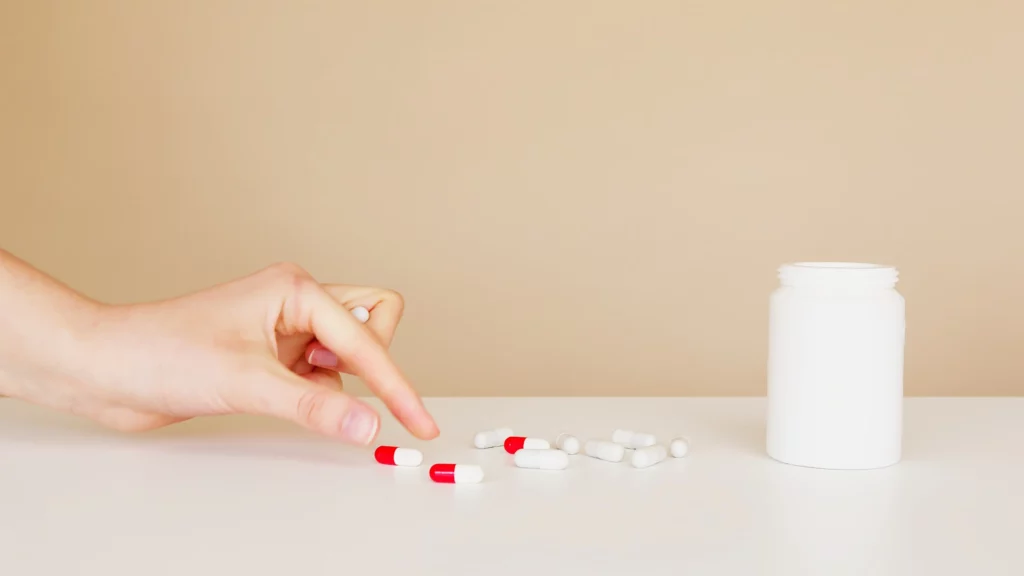For many, the journey of addiction began innocently with a legitimate diagnosis of chronic pain and a prescription meant to alleviate it.
Unfortunately, what started as a medical intervention evolved into dependence for some.
This article delves into the intersection of chronic pain management and addiction recovery, offering strategies and insights for those seeking to maintain their physical well-being and their commitment to a life free from substance dependence.
Living with Chronic Pain
Living with chronic pain is a long-lasting challenge that impacts every aspect of a person’s life, including daily activities and emotional well-being.
Chronic pain takes on different forms, each with its unique characteristics and effects.
Some people experience neuropathic pain, often described as a burning or shooting sensation arising from nerve damage or dysfunction.
Others suffer from musculoskeletal pain related to joints, bones, and muscles, which conditions like osteoarthritis or fibromyalgia may cause.
Visceral pain is linked to internal organs and can be triggered by ailments such as endometriosis or IBS.
Additionally, some individuals deal with migraines and headaches, a specific type of pain localized to the head and often accompanied by other symptoms.
Regardless of its origin or type, chronic pain necessitates compassionate and comprehensive management approaches to ensure the best possible quality of life for those affected.
Understanding Types of Pain Medications
Different types of pain medications are designed to alleviate or reduce pain caused by surgery, injury, or chronic conditions.
These medications range from over-the-counter options like acetaminophen and non-steroidal anti-inflammatory drugs (NSAIDs) to prescription opioids like morphine, oxycodone, and hydrocodone.
Although these medications are essential in managing pain, opioids have a higher risk of addiction.1
Opioids bind to the brain’s receptors, blocking pain and causing feelings of happiness.
However, continuous usage of opioids can lead to physical and psychological dependence, where the brain relies on the drug to produce these feelings.
This can lead to increased dosages and a higher risk of overdose.
People may also become addicted to opioids due to their euphoric effects.
This dangerous cycle of increasing tolerance and seeking euphoria can lead to addiction.
Statistics
| Opioid Epidemic | Details |
|---|---|
| Opioid Epidemic | Over 130 people died daily from opioid-related drug overdoses in the United States in 2018 and 2019. |
| Prescription Rates | According to the Centers for Disease Control and Prevention (CDC), healthcare providers across the U.S. wrote 58 opioid prescriptions for every 100 persons in 2017. |
| Transition to Heroin | The National Institute on Drug Abuse (NIDA) indicated that about 21-29% of patients prescribed opioids for chronic pain misuse them, and roughly 4-6% transition to heroin. |
| Addiction Rates | Of those who misuse prescription opioids, 8-12% develop an opioid use disorder. |
| Chronic Pain Patients | A study published in the journal “Pain” in 2016 suggested that approximately 8-12% of individuals with chronic pain who are treated with opioids develop an opioid use disorder. |
| Mental Health Impact | Individuals with prescription opioid use disorders are more likely to have co-occurring mental health disorders and physical health conditions, which can complicate treatment outcomes. |
Addiction and Dependency Among Prescriptions
The addiction problem is not just about physical dependency but also emotional, psychological, and social complexities.
Opioid medications, which doctors often prescribe for chronic pain relief, can effectively relieve pain.
However, these medications can also produce temporary euphoria or eliminate emotional distress.
Gradually, patients may find themselves seeking physical relief and these accompanying sensations.
As the body gets used to the medication, tolerance may develop, leading to a need for higher doses to achieve the same pain-relieving effects.
This cycle can result in physical and psychological dependence on the drug.
In some instances, what started as a legitimate therapeutic intervention can turn into full-blown addiction, making it hard to differentiate between medical necessity and compulsive drug-seeking behavior.
It is, therefore, crucial to monitor patients closely and maintain open communication between them and their doctors when managing pain.
The Challenge of Chronic Pain in Recovery
The road to addiction recovery is already a tough journey, but it becomes even more complicated when dealing with chronic pain.
Many people became addicted to pain medications they were prescribed to alleviate their pain.
These drugs were supposed to help, but instead, they became the chains that bound them to dependency.2
As individuals progress in their recovery, they face the challenge of managing their pain effectively without resorting to the substances they’re trying to leave behind.
Chronic pain affects the body and causes emotional and psychological distress, leading to feelings of despair, isolation, and vulnerability.
Individuals need medical expertise and emotional resilience to navigate the intertwined pathways of pain and recovery.
Recognizing the Risk of Relapse
Managing chronic pain during addiction recovery requires recognizing the risk of relapse.
It can be difficult to distinguish between relief and misuse, especially with the allure of prescription medications promising respite from unrelenting pain.
Though therapeutic in controlled doses, these medications can easily lead individuals back into patterns of misuse.3
This is where recovery support systems are crucial.
Regularly connecting with therapists, support groups, and peers in recovery serves as a reminder of the progress made and the importance of staying sober.
These connections act as both an anchor and a compass, keeping individuals grounded in their commitment to sobriety and steering them away from the danger of relapse.
Although the journey is challenging, the risk of backsliding can be managed effectively with self-awareness and strong support.
Strategies for Pain Management without Jeopardizing Recovery
Managing chronic pain while recovering from addiction requires a comprehensive approach that prioritizes pain relief without jeopardizing sobriety.
Alternative therapies, like physical therapy, acupuncture, massage, and chiropractic care, can provide significant relief by addressing the underlying causes of pain or using body manipulation to promote healing.4
Mind-body techniques, such as meditation, deep breathing, progressive muscle relaxation, and biofeedback, can tap into the brain’s power to modify pain perception, promoting relaxation and a sense of control.
Although opioids may not be an option, non-opioid medications, including NSAIDs and certain antidepressants and anticonvulsants, can help alleviate pain.
Making fundamental lifestyle adjustments, such as regular exercise, a balanced diet, adequate hydration and sleep, and stress management techniques, can profoundly impact pain levels and overall well-being.
Most importantly, keeping healthcare professionals informed about addiction history and regularly reviewing the necessity and dosage of pain medications promotes a safe, collaborative approach to pain management.
| Strategy Category | Specific Strategies |
|---|---|
| Alternative Therapies |
|
| Mind-Body Techniques |
|
| Non-Opioid Medications |
|
| Lifestyle Adjustments |
|
| Open Communication with Healthcare Professionals |
|
Holistic Approaches to Pain Management and Recovery
Regarding chronic pain and addiction recovery, holistic healing addresses a person’s physical, emotional, psychological, and spiritual well-being.
This approach acknowledges that the mind, body, and spirit are interconnected and can affect each other in various ways.
Holistic healing treats the whole person instead of focusing on isolated symptoms or conditions.
In the case of chronic pain and addiction recovery, this means recognizing how physical pain, emotional distress, and addictive behaviors are intertwined.
Holistic healing promotes long-term health and balance by addressing the root causes and underlying issues rather than suppressing symptoms.
The idea of the mind-body connection is central to holistic philosophy.
It suggests that our thoughts, feelings, beliefs, and attitudes can positively or negatively impact our biological functioning.
This connection plays a crucial role in pain perception and recovery.
For example, chronic stress or unresolved trauma can intensify pain sensations, while positive emotions and relaxation can alleviate them.
In addiction recovery, understanding this connection is crucial as mental and emotional well-being can significantly impact cravings, resilience, and the overall journey toward sobriety.
Complementary Therapies in Holistic Pain Management and Recovery
| Complementary Therapy | Description |
|---|---|
| Meditation | By cultivating a focused awareness and encouraging relaxation, meditation can reduce pain perception and help individuals cope with cravings or triggers in recovery. |
| Yoga | Blending physical postures with mindful breathing and meditation, yoga can enhance flexibility, reduce pain, and promote mental clarity. Its principles also help in grounding individuals, making it a beneficial tool in addiction recovery. |
| Acupuncture | This ancient Chinese therapy involves inserting thin needles into specific points on the body to stimulate energy flow and balance. For many, acupuncture relieves chronic pain and can help reduce withdrawal symptoms or cravings in those recovering from addiction. |
| Mindfulness | By teaching individuals to remain present and fully engage in the current moment without judgment, mindfulness can reduce pain intensity and provide coping mechanisms for those in recovery. |
Including holistic approaches in a complete plan for managing pain and recovering from addiction can be greatly advantageous.
These methods address the physical effects of pain and addiction and tend to the emotional and spiritual aspects, promoting overall well-being and increasing the likelihood of successful long-term recovery.
Medication Management: Finding Balance
Managing medication while recovering from addiction can be daunting and complex.
Pain medications can be a lifeline for those with chronic pain, but if misused, they can lead to a relapse.
That’s why having an open and transparent conversation with healthcare providers is important.
Patients should communicate their medication needs and concerns to ensure that the provider and patient are on the same page.
Consistency is key for balanced medication management.
Patients should follow a schedule, store their medicine securely, and avoid adjusting dosages without consulting their healthcare provider.
Regular check-ins with healthcare providers, involving a trusted family member or friend in the medication management process, and staying informed about potential side effects and dependency risks are important strategies.
By combining caution with open communication, it’s possible to manage pain effectively without jeopardizing the progress made in recovery.
The Role of a Support System
Managing chronic pain and addiction recovery is a challenging process that requires a strong support system.
Friends, family, and support groups offer emotional support, practical advice, and a listening ear, which are crucial in pain management and recovery.
They help individuals feel less isolated, understood, and validated.
In addition to personal support, engaging with professional therapists or counselors who can offer expert guidance, coping strategies, and therapeutic interventions is equally important.
These professionals can help individuals navigate the complex challenges of pain and recovery, leading to deeper self-awareness.
In summary, a solid support system serves as a scaffold that provides strength during difficult times and celebrates progress.
Resilience and Long-Term Wellness
Managing chronic pain while in addiction recovery requires a lot of resilience, perseverance, and self-compassion.
Many people have faced this challenge and found ways to alleviate their pain while staying committed to their recovery.
It’s important to remember that every small step forward is a victory, even if the road is long and difficult.
Resilience helps you bounce back from setbacks, perseverance helps you keep going despite obstacles, and self-compassion reminds you to be kind and understanding to yourself throughout the journey.
Looking to others who have walked this path before can inspire you and guide you toward a brighter, pain-managed, and substance-free future.

Each person’s journey through chronic pain and recovery is unique, with challenges and victories.
The resilience, support from loved ones, and belief in a brighter future guide us through the highs and lows.
Even the toughest storms eventually give way to clear skies.
With dedication, support, and self-confidence, achieving balanced well-being and lasting recovery is a dream and a beautiful reality within reach.
If you or someone you care about is dealing with addiction or chronic pain, we encourage you to contact Cornerstone Healing Center for a free and confidential assessment. Our treatment center is grounded in evidence and prioritizes holistic approaches to promote long-term recovery by addressing internal factors. Let us help you today!
SOURCES
[1] What are prescription opioids?
[2] Evidence on Strategies for Addressing the Opioid Epidemic
[3] Prescription Sedative Misuse and Abuse
[4] Successful Pain Management for the Recovering Addicted Patient
Published: 9/4/2023
Contributor: Julie Miller
Editor: Susana Spiegel










